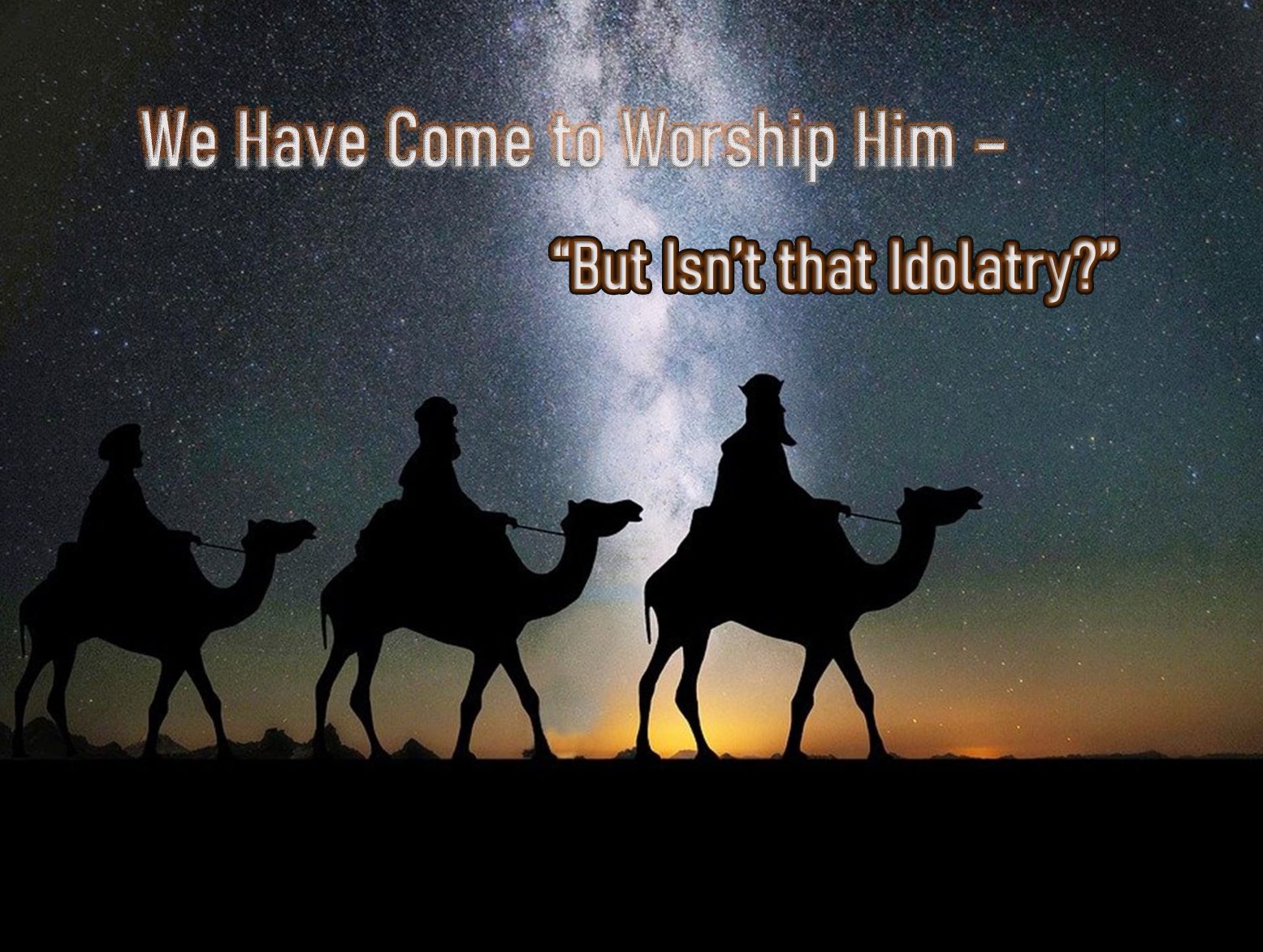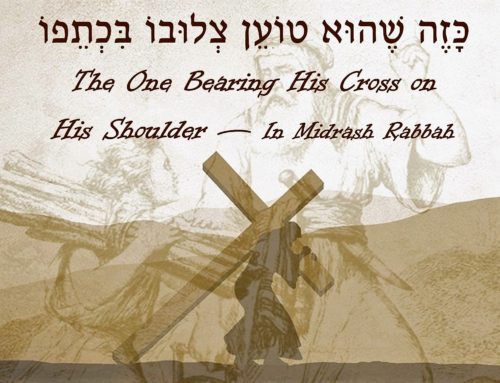The world is talking about a conjunction of the planets Jupiter and Saturn in what some are calling the “Bethlehem Star”. Tonight, December 21st, we took our youngest to the Judean hills, away from city lights, to watch the appearance of that star in the southwestern sky. Two-thousand years ago, Wise men from the East journeyed to Jerusalem following a heavenly sign, a star heralding the birth of the King of the Jews. Who were the Magi of the East? Why would the birth of a human king interest them? Many sources attribute them to living in the region of Babylon, in the tradition of Chaldean scientist, and interpreters of stars and dreams. Daniel, the Jewish prophet some seven hundred years earlier had been the ruler of the wise men of Babylon. We might assume that these men were operating on knowledge passed down from the writings of Daniel. In fact, the book of Daniel shifts from Hebrew to Aramaic purposely. I believe that those words in Aramaic were meant to guide these wise men on their quest, and to lead wise men today to the one born, King of the Jews.
To understand the majesty of the wise men’s message of the birth of Israel’s king I would like to weave a fictional account of their arrival to the outskirts of Jerusalem.
The Outskirts of Jerusalem
Celestial events propelled the Magi to a village near Jerusalem, but just short of their goal they lost sight of His star. Finding lodging for the night among Israel’s pious, they were greeted with this question.“Have you come to Jerusalem to worship the Holy One at the Temple?”“We seek the one born king of the Jews? His star has risen in the east; we have come to worship Him.” The men of Babylon replied.“Blasphemy!” Their Jerusalem host shouted, “Worship a man!” he scoffed, “blasphemy! Our Scripture forbid this saying, ‘You shall fear only the LORD your God, and you shall worship Him’.” (Deut. 6. 13)The wise men quickly commanded their youngest to bring the sacred scroll. Motioning for calm, they unfurled the writings of Babylon’s greatest Wise Man. A weathered finger scanned the leather parchment, and then motioned the gathering crowd close.“Here, in our own tongue, it is written of a man whom all peoples, nations, and languages will worship!”“No, friend from the East”, the Jewish host said, “You must be mistaken. Who wrote such a thing?”“We call him, Belteshazzar, Chief of the Magi, but undoubtedly your learned men call him Daniel the Prophet.” The host held his oil lamp close to read the prophecy for himself, his lips moved to Daniel’s words.“He (the Son of Man) was given authority, glory and sovereign power; all nations and peoples of every language worshiped him.” Daniel 7. 14 NIVThe elder wise man pointed to the Aramaic word “worship”. “True”, he said, “In the Hebrew tongue, ‘worship’ can mean to serve, give obeisance and worship, but in our Aramaic tongue, as Daniel has written it, it ONLY MEANS WORSHIP offered to God.”“But how could Daniel write such about a man?”, the son of Israel shouted!
“Because”, the Magi explained, “The Ancient of Days, the God of Israel, demands it!”, and quickly he rolled the sacred scroll. “We have watched and waited for His sign to appear in the heavens for a long time. Tomorrow we will inquire with King Herod, surely he knows where, on this sacred soil, the Great King of Israel has been born.”
Honest Objections and Prophetic Answers
Of course, this story is historical fiction, but it highlights the real tension many Jewish people feel when Christians talk about worshipping a man, Jesus. If we were left with only the Greek or even the Hebrew word for worship, the meaning of Daniel’s text would be ambiguous. The Magi told Herod they came to “worship” the one born King of the Jews. In Greek, that word can mean worship unto a god, or simply to bow in service. One is idolatry, the other acceptable. Did the Magi think Yeshua was divine? Would the pious Joseph and Mary have tolerated worship of their baby? Likely, they simply knelt before Yeshua in honor. So why have I painted such a picture for their journey? Because I believe they saw in Yeshua’s birth a heavenly origin, worthy of true worship. And this gets to the heart of tension between sincere practitioners of the Jewish faith and followers of Yeshua. How can followers of Yeshua justify worshipping Him, in violation of Scripture?
Yeshua Himself rebuked Satan citing Deuteronomy’s clear command.
“Away from me, Satan! For it is written: ‘Worship the Lord your God, and serve him only.’” Mathew 4. 10 NIV
Do you feel the conflict? I certainly do. But for many Christians, there is no conflict. “Why”, they say, “Jesus is God. Don’t you know that?” But Christian answers from creeds, theology and the New Testament do little to deflect the real concerns of Jewish people. As one who holds the Hebrew Scriptures as equal in my faith with the New Testament, I agree. No mere man deserves worship – no man, but the one whom Daniel called, “the Son of Man”. He must be worshipped because the God of Israel demands it. For me, Daniel’s prophecy, likely known by the Magi, is the “directional star” leading to Yeshua.
“In my vision at night I looked, and there before me was one like a son of man, coming with the clouds of heaven. He approached the Ancient of Days and was led into his presence. He was given authority, glory and sovereign power; all nations and peoples of every language worshiped him. His dominion is an everlasting dominion that will not pass away, and his kingdom is one that will never be destroyed.” Daniel 7. 13-14 NIV
One “like a Son of Man” (Bar Enash) in Aramaic, is here distinguished from the Ancient of Days. Yeshua identified Himself with Daniel’s “Son of Man” coming on the clouds of heaven.
“You have said so,” Jesus replied. “But I say to all of you: From now on you will see the Son of Man sitting at the right hand of the Mighty One and coming on the clouds of heaven.” Mat. 26. 64 NIV
He will sit on the throne, be given authority, glory, sovereign power, and yes worship! This specific word for worship (פְּלַח) in Aramaic ONLY means worship of a deity.[1] Could that be a reason the Holy Spirit inspired Daniel to shift languages in the middle of the revelation?
Conclusion
Did the Wise men worship or simply bow down? I cannot say for certain, but I believe Daniel, the Chief of Babylon’s wise men and the prophet of God is clear. Yeshua is worthy of your worship, because The Holy One demands it. And one day He will be worshipped by all creation in heaven, the earth, and under the earth, because God commands it.
“Therefore God exalted him to the highest place and gave him the name that is above every name, that at the name of Jesus every knee should bow, in heaven and on earth and under the earth, and every tongue acknowledge that Jesus Christ is Lord, to the glory of God the Father.” Phil. 2. 10 NIV
As we come to this time of year when all peoples, tribes, and tongues, are lifting their voice in worship to God and His Son, many in Israel are also lifting their voices, for the Son of Man, Yeshua, the King of the Jews, is worthy to be praised!
Merry Christmas from Zion
[1] Delitzsch, F. (n.d.). Daniel 7 Commentary – Keil and Delitzsch Commentary on the Old Testament. RetrievedDecember 21, 2020, from https://www.studylight.org/commentaries/kdo/daniel-7.html
“These two things belong only to the kingdom of God. פּלח is used in biblical Chaldee only of the service homage due to God; cf. Daniel 7:27; Daniel 3:12-13, Daniel 3:17., Ezra 7:19, Ezra 7:24. Thus it indicates here also the religious service, the reverence which belong to God, though in the Targg. it corresponds with the Heb. עבד in all its meanings, colere Deum, terram, laborare.”
[/fusion_text][/fusion_builder_column][/fusion_builder_row][/fusion_builder_container]


